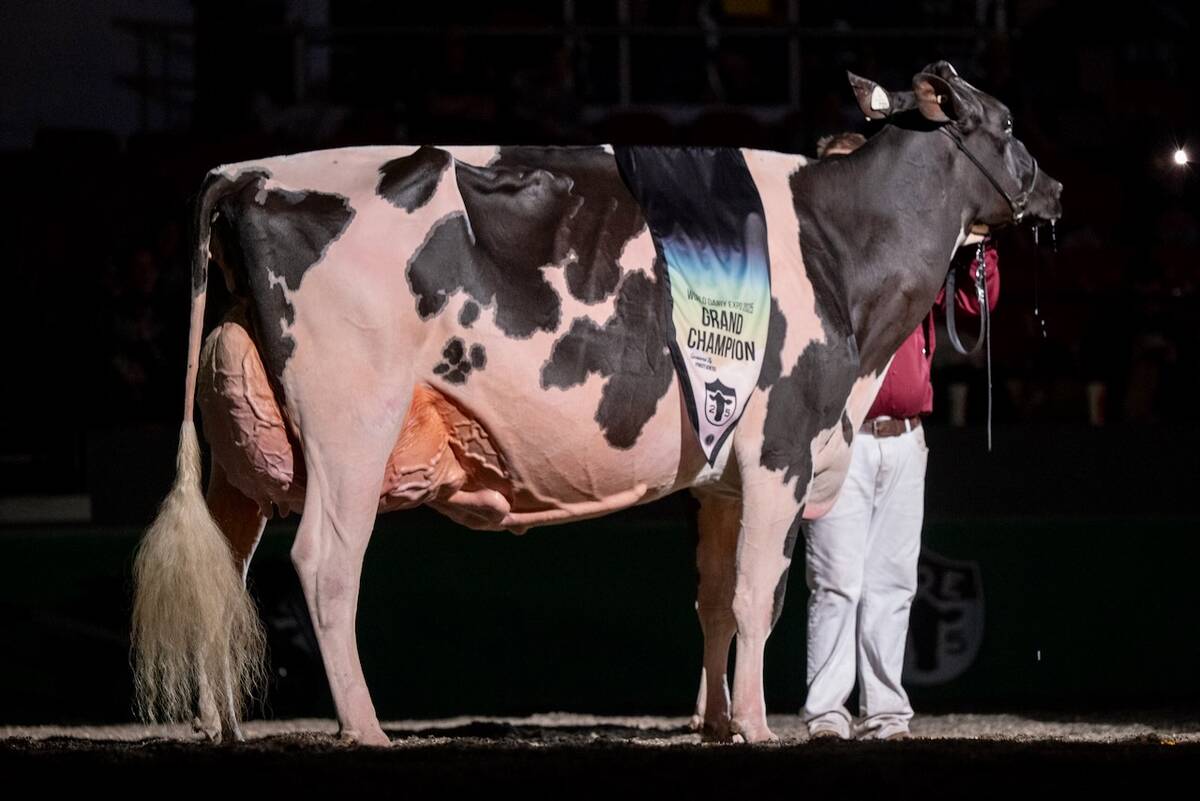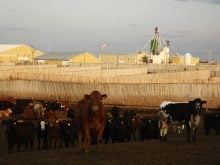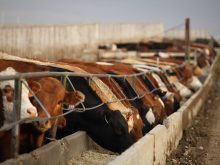Parasites in sheep are increasingly developing resistance to treatment.
To address the problem, the National Sheep Association in Great Britain has developed recommendations to deal with broad spectrum treatments that are showing less efficacy against worms and other parasites.
“People just aren’t noticing it and that is because if you got 90 percent efficacy, you think it works,” said Peter Baber, a purebred sheep producer from Devon, England, in a presentation to the Alberta Sheep Symposium in Calgary last month.
“When the efficacy rate drops to 60 or 70 percent before you begin to realize, you have to go back and drench them all more frequently,” he said.
Read Also

Canadian-bred cow wins World Dairy Expo Holstein show
A cow bred in Saskatchewan, Lovhill Sidekick Kandy Cane, is the Grand Champion Holstein at the 2025 World Dairy Expo.
These products kill susceptible worms but the resistant group survives and multiplies. Over time the continued use of a chemical results in more of the resistant variety.
“Every time you use a drench on your farm you are increasing the overall resistance on the farm,” Baber said.
Lambs are born without parasites and most healthy adult ewes have good immunity levels to diseases such as haemonchus and liver fluke.
“Immunity is never 100 percent,” he said. “Even in adult sheep there will be a small population of worms that are constantly triggering that immune response.”
British producers started to see resistance in 1982 to benzimidazole (BZ), an effective dewormer for ruminants. A 2000 study in Scotland revealed 60 percent resistant to BZ. New Zealand also reports widespread resistance.
In 2003 a workshop on endoparasites developed sustainable control in sheep. The group involved government, farmers’ associations, the veterinary medicine directorate and the pharmaceutical and chemical industries.
It recommended:
- Work out a control strategy with a veterinarian. Different products are licensed for use in different countries so check to see what products are available.
- Use effective quarantine strategies to prevent the importation of resistant worms in new sheep and goats. If the status of the farm is unknown when buying animals, assume it has resistance problems. Hold the new animals off pasture for 24 to 48 hours and treat with different chemicals sequentially.
- Turn sheep out on dirty pasture so they can pick up other worms to compete against whatever resistant worms survived the treatment.
- Always administer drenches correctly and at the right dose rate. Base dosages on the heaviest animal in the group. Weigh them to obtain a correct weight. Check to see if the dosing gun is working properly and make sure the drench goes over the back of the tongue.
- Take manure samples before and after using the drench. Talk with the vet to determine how high the fecal egg count needs to be before administering treatments. Fecal egg counts can also show which parasites are present so the correct chemistry is used.
- Reduce dependence on treatments if possible and use only when necessary. Fecal egg counts determine when and which sheep to drench. Minimizing the treatments given to mature sheep that are immune to most worm species is important. The need to treat healthy adult sheep is limited and should be questioned.















